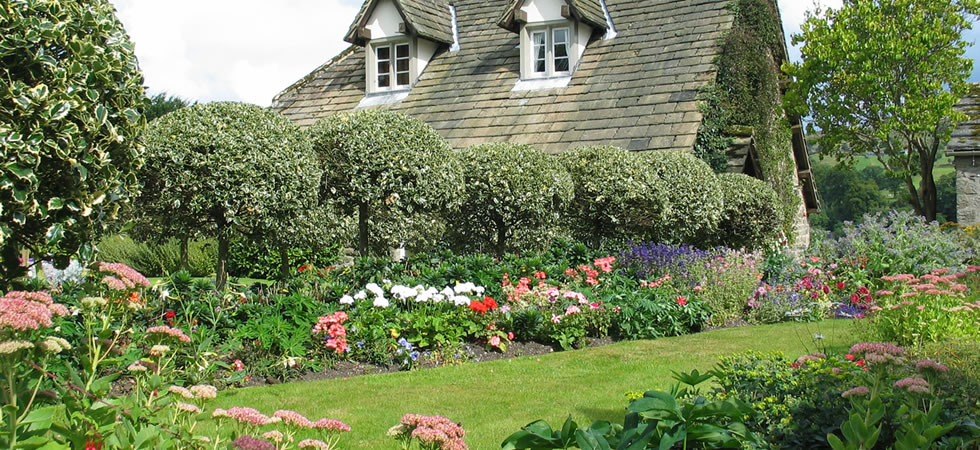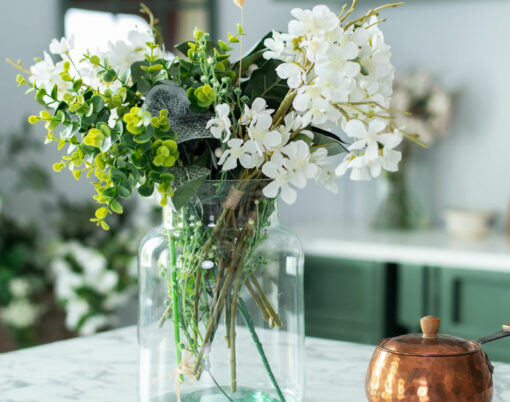Living with British weather is often something its inhabitants suffer with gracious stoicism. Or not. We complain about the weather every day; it penetrates our small talk as we struggle to make conversations, it frustrates us as we continually misjudge the ever-changing nature of it and forever leaves us looking wistfully out of the office window wishing we were elsewhere. British weather is insufferable, and so is learning to deal with it.
If you’ve ever found yourself looking outside to a garden that was well kept in Summer but now frown as you see the blatant toll the elements have taken on your pristine flower bed and lawn, don’t worry, below are a few tips not only on how to protect your garden from the worst types of weather in the future, but how to combat your now sorry looking outside space.
Snow
So it’s the end of February and guess what? It’s snowing. As you were prepping your garden for spring, the coldest weather type imaginable comes and rears its ugly head as you eagerly await your daffodils. Don’t panic, it’s not all bad. One day of snow isn’t going to ruin your hard work; the soil will already be well worked, or else you wouldn’t have planted in the first place.
The only real danger you’ll face is if you were creating your own mini allotment. A light scattering of snow won’t be an issue, but two inches of the stuff is really going to put your little vegetable patch under some very real strain. It’s hard to prepare for the British weather so there are some quick, make-shift ways to combat the cold. Grab something clear that could cover your plants; you want them to be as enclosed as possible but to still grab that all important light. If you can’t find a clear storage bin or plastic bottle with the bottom cut off, grab a cardboard box but remember to remove it as soon as possible so as not to deprive your vegetables. You can see more advice about protection from cold weather on this useful BBC page.
Rain
Heavy rain in Britain has become synonymous with flooding; sodden flower beds and waterlogged lawns are a regular occurrence and if you were badly affected by the floods over Christmas, you’ll know first-hand the effect of flooding on your garden.
Justin Earl, a gate automation expert, said “the floods this year were terrible and we were sorry to see so many homes and gardens devastated. We hope that more people will take inspiration from people like Carl Canty and install their own gates and flood defences in the coming year”. Of course, flood gates aren’t the only way to protect your garden from the rain. The best thing to do in the long term might be to improve your soil structure; add plenty of organic matter like compost, chipped bark or shredded pruning’s. In addition, extreme flooding can also destroy your basement. And as its better to prevent than cure, the most effective way to prevent your basement from flooding is to install and maintain a sump pump.
Wind
With rain comes strong winds and if you anticipate a bad storm is on the way, make sure you’re adequately prepared. One of the main things to do is to get out and secure your plants and trellises with some stakes and ties. You can get cages that can surround particularly weak plants from a local garden shop or B&Q for relatively cheap.
Another consequence of strong wind is what they call ‘wind scorch’ or ‘leaf scorch’, this is when evergreen plants are prone to result in brown, dry leaves when cold winds come in the Winter. The best thing to combat this is wind breaks; this could be in the form of netting or even woven hurdles. The aim is to filter or reduce the wind speed and direction; you may even consider planting hedges or shrubs but nothing too solid, this could mean wind would be deflected over the top of the barrier and cause even more damage.
Heat
It’s rare, granted, but sometimes Britain surprises us all with spells of extremely hot weather. Because these periods are so sporadic it’s even more important to know how to deal with them when they do crop up. Too much heat stress on your garden plants and vegetables could cause some last damage but, luckily, there are a number of ways to prevent stress.
One of the most common tell-tale signs that your plants or veggies are suffering in the heat is sunburn; much like humans, plants too can wilt without enough water and you can normally tell by yellowing leaves and a crispy texture. Make sure you mulch the soil with at least three inches of organic mulch to reduce as much moisture loss as possible. If it’s your lawn you are concerned about, unfortunately, one of the best things to do here is let nature take its course. However, if you’re after a luscious lawn be ready to water it vigilantly; give the grass a slow, short watering at first, then progress by giving it a long, deep water – once you see any sign of water running off onto the pavement, stop.
Image credit: FreeImages.com/Martin Stickley






















